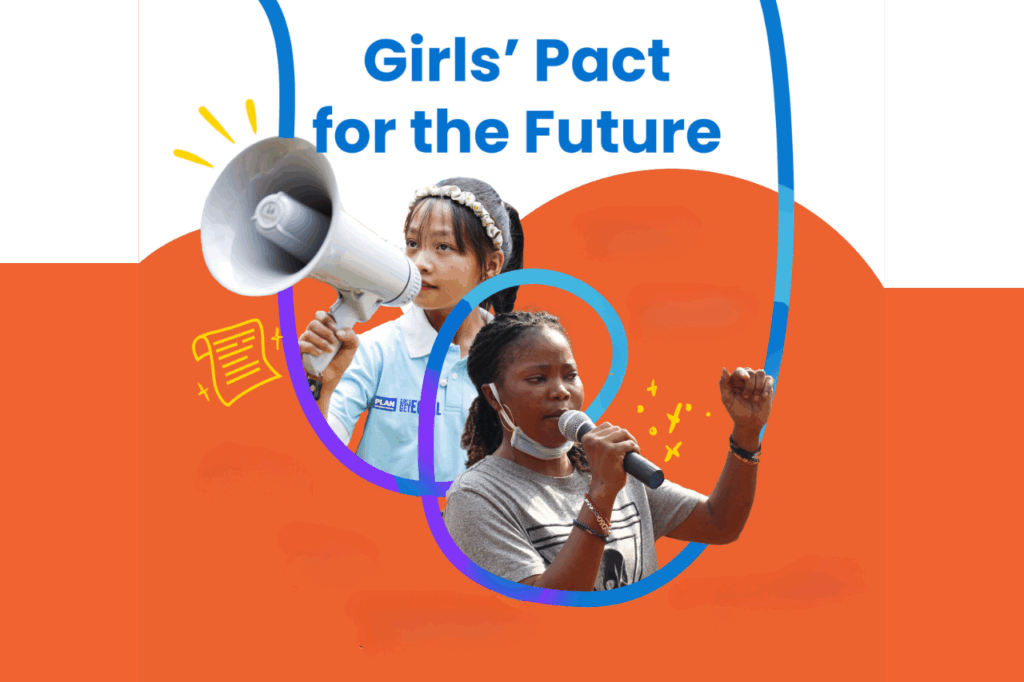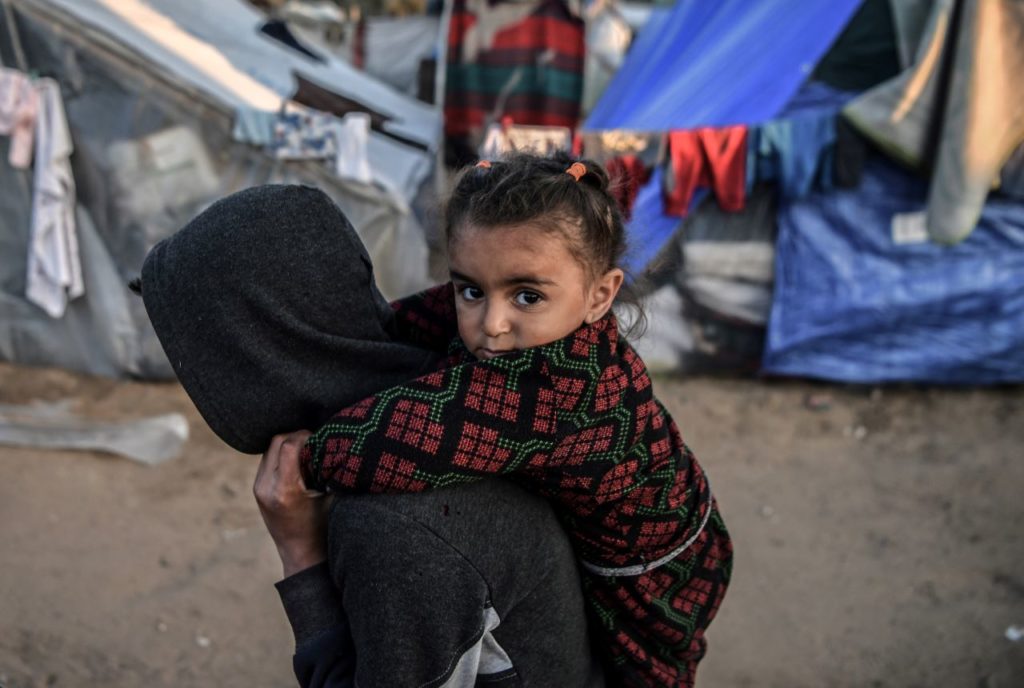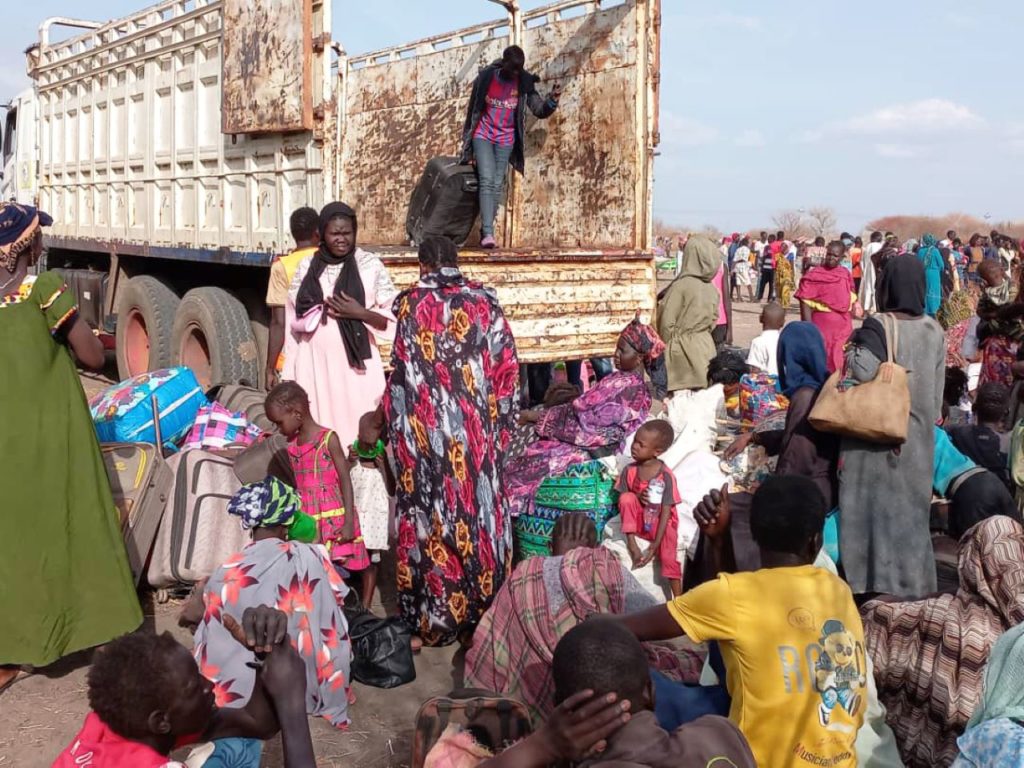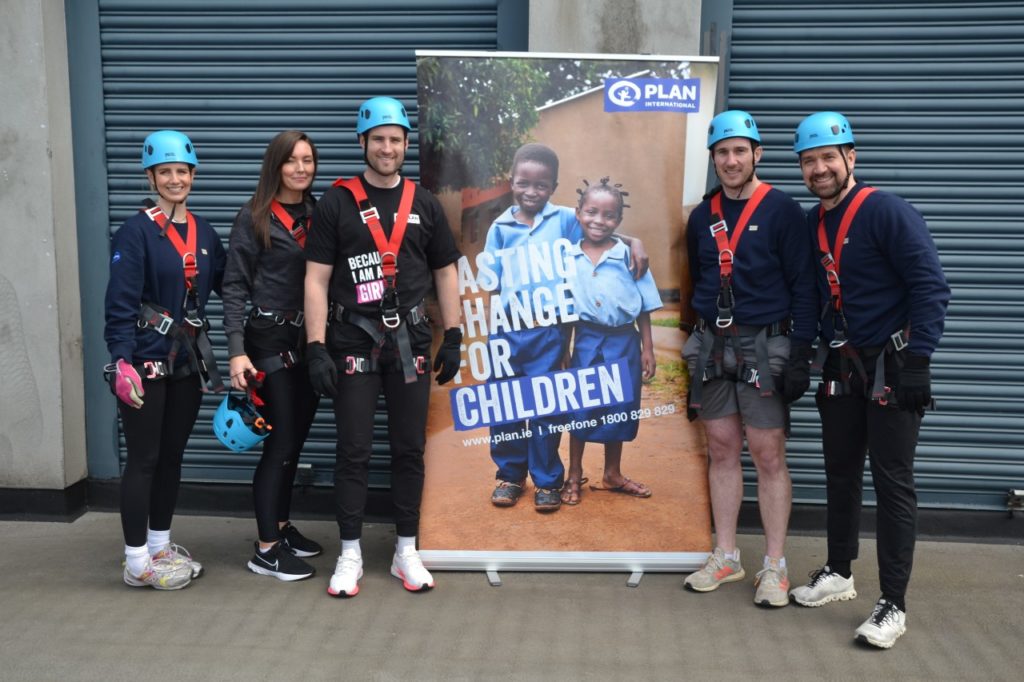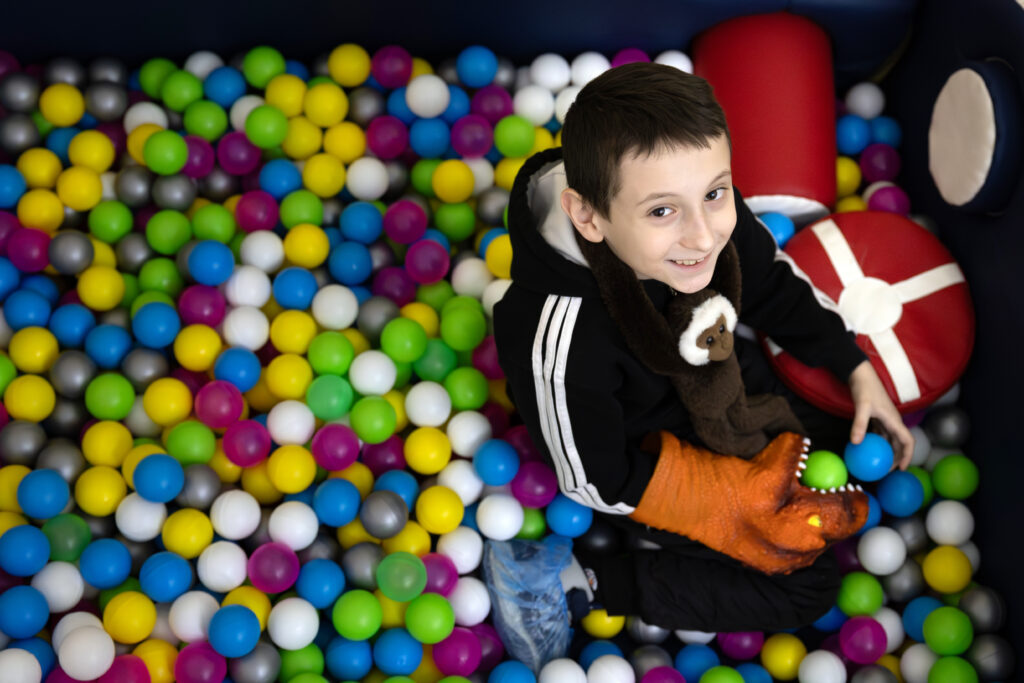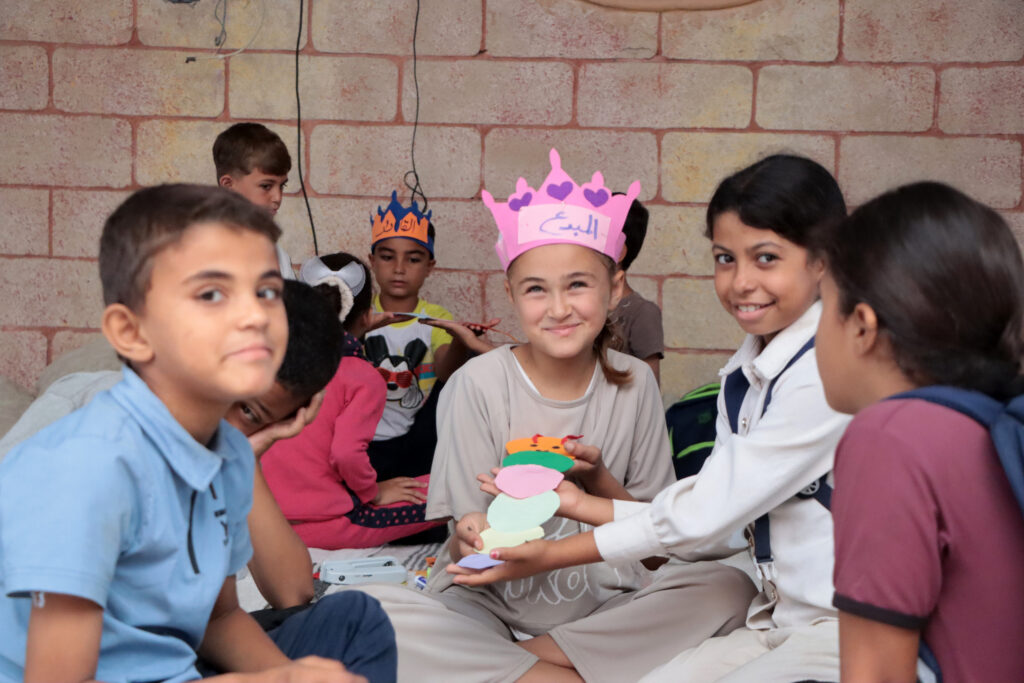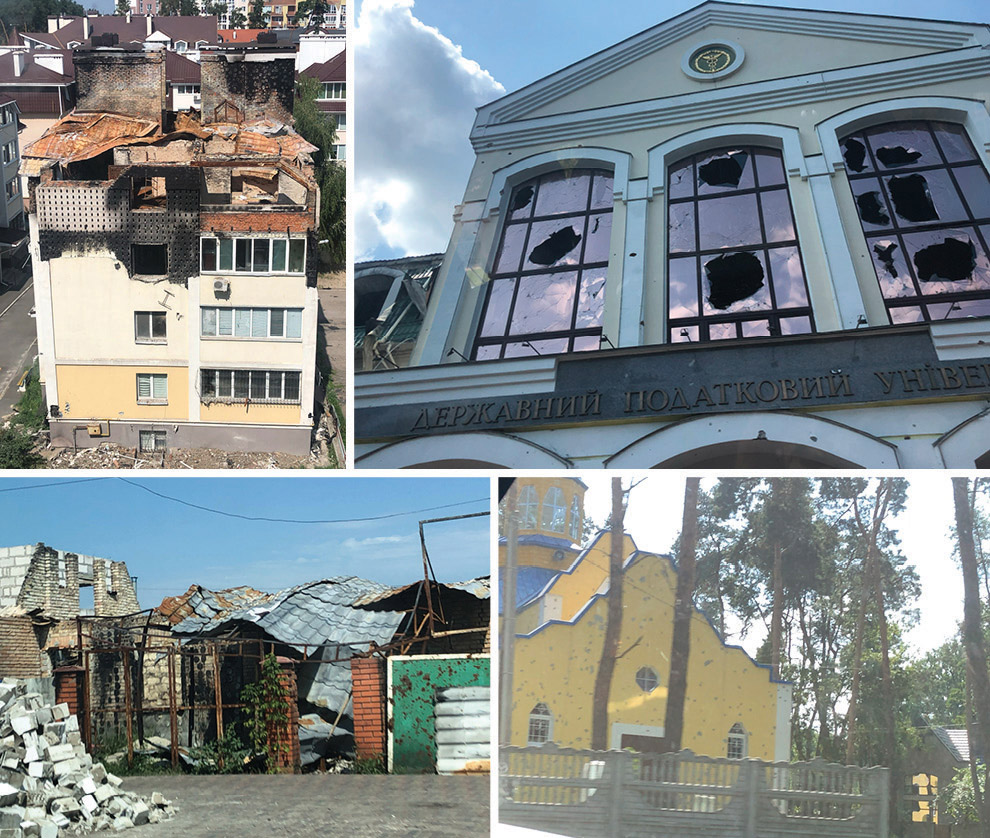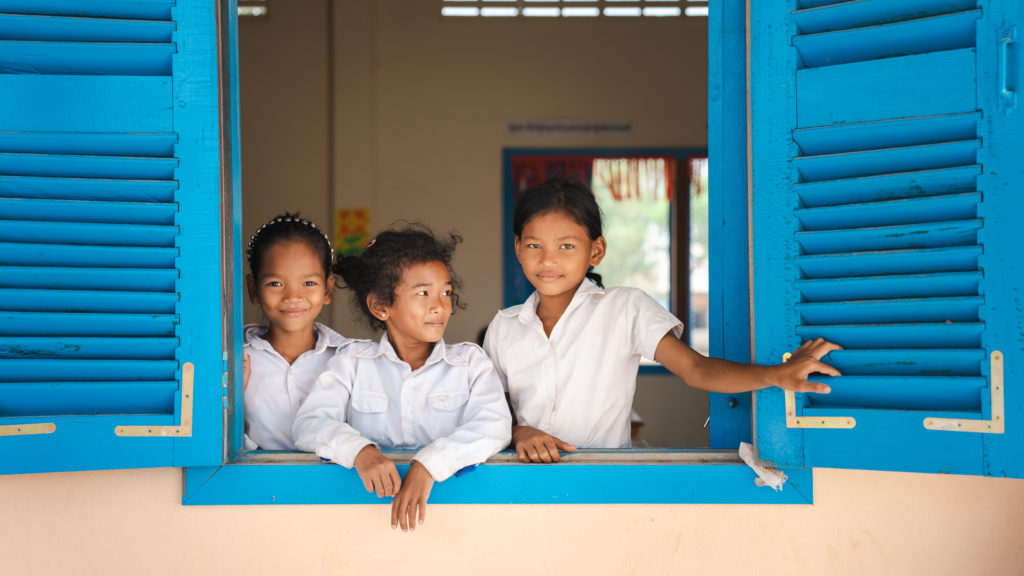A “colossal” increase in humanitarian aid to Gaza is needed immediately to stop children from dying needlessly, restore dignity and ease psychological suffering, warns child rights NGO Plan International.
This Sunday (7 April) will mark six months since Israel launched its military offensive in response to the 7 October attack by an armed Palestinian group, which killed 1,200 people in Israel. The death toll in Gaza is now feared to be in excess of 32,000, according to the Palestinian Ministry of Health, including 13,000 children.
More than 100 people are still believed to be held hostage inside Gaza.
Six months of constant aerial bombardment has left nearly all of Gaza’s civilian population reliant on humanitarian aid for survival, however, aid agencies have only been able to negotiate permission to deliver a small fraction of the supplies required to sustain Gaza’s 2.1 million people.
The withdrawal of multiple NGOs from Gaza after seven aid workers from World Central Kitchen were killed in an air strike on Tuesday (2 April) will compound an already desperate situation, warns Plan International. Together with humanitarian and human rights organisations around the world, the organisation calls on all parties involved in the conflict to guarantee the safety of aid workers and civilians in line with international humanitarian law.
Last month, the IPC partnership predicted that food shortages caused by Israel’s restrictions on aid and prolonged military assault mean famine could occur in Gaza anytime between now and May.
According to Plan International, for every child at risk of death from an air strike, starvation or lack of medical assistance, countless more will bear long-lasting psychological scars as a result of witnessing family or friends dying, life-changing injuries and being deprived of the basics of childhood. In March, an average of 161 aid trucks crossed into Gaza each day – well below the combined capacity of the Kerem Shalom and Rafah crossings, which is 500 per day.
Dr Unni Krishnan, Plan International’s Global Humanitarian Director, says: “Time is slipping away rapidly for the children in Gaza, more urgently than ever. A significant surge in vital humanitarian aid is crucial and urgent. To make this a reality, ensuring the safety of aid workers and civilians is paramount.
“Just a few minutes’ drive from Rafah, where families are sheltering in the most unimaginable and rudimentary conditions, there are thousands of trucks containing food and other life-saving supplies. It is absolutely critical that safe humanitarian access to Gaza is guaranteed at speed, so that aid agencies can deliver supplies to civilians in desperate need, especially malnourished children and pregnant women.
“Right now, Gaza is known as the most intricate humanitarian response context in the world. It is the most dangerous place in the world to be a child and an aid worker. We know from experience that the catastrophic psychological impact of war will continue to haunt children and their caregivers long after fighting stops. An 18-year-old living in Gaza today will have lived through conflict in 2006, 2008, 2012, 2014, 2021 and now since October 2023, witnessing things no child ever should. This has a profound impact on a young mind.
“We urge all parties to guarantee safe, unimpeded access for humanitarian workers and vital relief supplies in Gaza. We also continue to call for a permanent, complete and immediate ceasefire, as the only way to truly bring this suffering to an end.”
Since October 2023, Plan International has been scaling up support to humanitarian partners to provide critical humanitarian assistance inside Gaza. Since the start of Ramadan, Iftar meals have been provided to a total of 6,000 internally displaced people in Rafah via Taawon, a local partner.
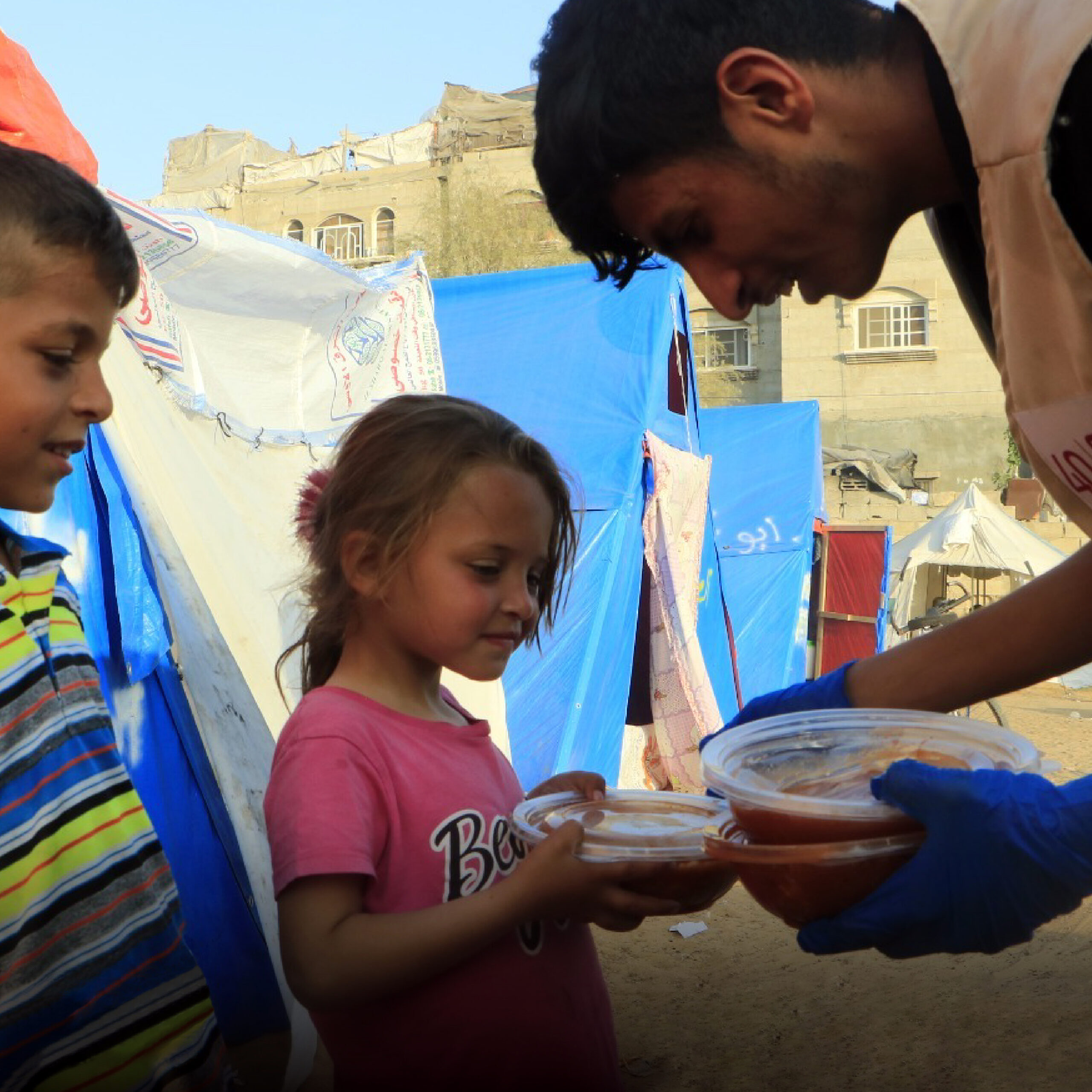
Plan International has also been working with Egyptian Red Crescent to deliver supplies via the Rafah crossing in Egypt. To date, 600 food baskets, 1,000 first aid kits and 1,600 cartons of water have been delivered.
The organisation is currently working to deliver female protection kits to women in Gaza, containing supplies such as abayas, hairbrushes, underwear and winter shawls – items which have been in desperately short supply.
Fatima, a 23-year-old youth activist who has fled with her family to the east of Gaza, told Plan International how her family now uses animal feed for baking, while her brother takes the risk of going to the eastern line in search of vegetables.
She says that food shortages have left her feeling “helpless”, and that she worries her young sisters are not getting the nutrition they need for their growing bodies to develop.
“Since the beginning of the conflict, we have been collecting wild plants from the land to eat including hibiscus, chard and lentils. When we can’t find anything growing near to us, my brother, who is 18 years old, goes to the eastern line to look for chard, but this is dangerous because of the occupation and the risk of being bombed.
“Flour is expensive and very scarce, so we use animal feed for baking. My uncles travel for long distances to get flour from the aid distributions. There are no vegetables or fruit for sale anywhere and the price of meat and chicken is very expensive, around 50 USD per kilo. A bag of flour is about five hundred dollars per bag. The food stocks in our house are almost gone.
“I feel sad that I can’t have the food I want, it makes me feel helpless and that my existence has no value.
“Yesterday was the first time that we have eaten meat in five months. We raise pigeons and decided to eat one as we have nothing else left. It made me feel happy because I haven’t eaten good food for a long time.”
